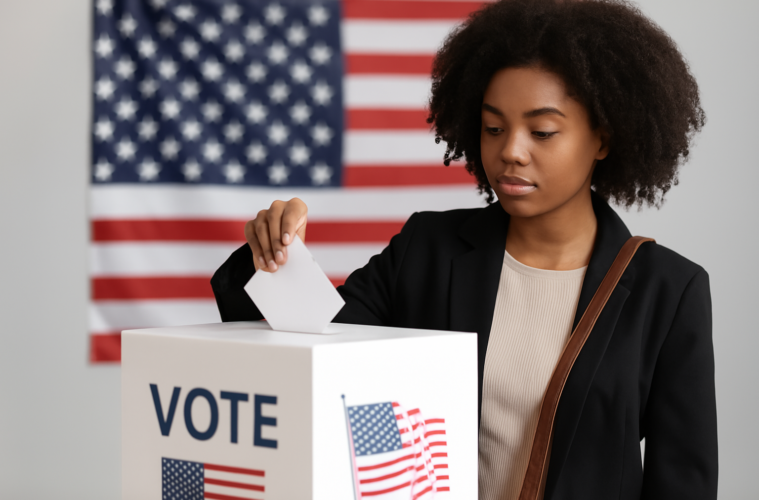By: Natalie Greene, student journalist
From changing your name after marriage to balancing work, motherhood, and civic duties—being a woman in Texas comes with enough responsibilities. But if lawmakers have their way this legislative session, casting a ballot could soon become even harder for millions of women across the state.
Among the most alarming proposals? Senate Bill 16, which would require every voter to show documentary proof of citizenship—like a birth certificate or passport—every single time they register to vote or update their name or address.
And here’s where that hits women the hardest.
“86% of married women change their last name—but if your ID doesn’t match your birth certificate, and you don’t have a current passport, you can’t register,” Katie Campbell Shumway, Executive Director of the League of Women Voters of Houston, said at a March 18 Houston Community Media briefing and roundtable discussion.
In other words, if you’ve recently gotten married or divorced, moved to a new home, or had to renew your license without updating federal records, you could face serious barriers just to vote.
That’s exactly what happened to Emily French, Director of Policy at Common Cause Texas.
“If this law had been in effect when I got married, I would’ve had to go in person twice—once to change my name, and again to change my address—both with proof of citizenship,” she told attendees. “There’s no evidence that non-citizens are voting in any significant numbers.”
And yet, these policies are being framed as “election integrity” efforts. Advocates say they’re really about shrinking the voter pool—and women are caught in the crosshairs.
????????????Real Women. Real Impact.
The bills won’t just affect name changes. Naturalized citizens, working mothers, students, and caregivers could also find themselves navigating red tape just to vote.
“The Social Security Administration, DPS, USCIS, and the voter registrar don’t talk to each other,” explained Shumway. “So when someone becomes a citizen, they have to update every system themselves.”
For busy women balancing family, jobs, and community responsibilities, that’s not just an inconvenience—it’s a potential roadblock.
Jesús Zamora of Mi Familia en Acción said immigrant women in particular are already feeling the pressure.
“We’ve seen parents afraid to send their kids to school or go to work. People are even avoiding community events,” he said.
His organization is now going door-to-door to provide “Know Your Rights” resources to families who are scared to come out.
????️ Voting Isn’t Just a Right. It’s Power.
Carl Blair, Senior Election Attorney at the Texas Civil Rights Project, warned that another bill under discussion would eliminate countywide polling—which currently allows voters to cast ballots anywhere in their county.
“There’s bipartisan support for countywide polling—yet there’s still a push to abolish it and force people back to precinct-only voting,” said Blair.
That change would be especially hard on working moms and shift workers who can’t always get to one specific location on time.
With many local elections on the horizon, the stakes are high. But so is the potential for change.
“This legislative session does not last forever. It feels like it does—but it will end. And this is a temporary fight that we can do,” Shumway said.
???????? What You Can Do Right Now
- Call your representatives—and do it more than once. Lawmakers count every single contact.
- Visit your elected official’s local office if you can’t get to Austin.
- Talk to your girlfriends, your sisters, your coworkers. Use your group chats, brunch dates, or carpool convos to share what’s happening.
- Check your registration status and be proactive about document updates.
This fight isn’t just about laws—it’s about making sure every woman in Texas can show up, be counted, and raise her voice.
Because your name, your marriage, your zip code—none of that should silence your vote.

